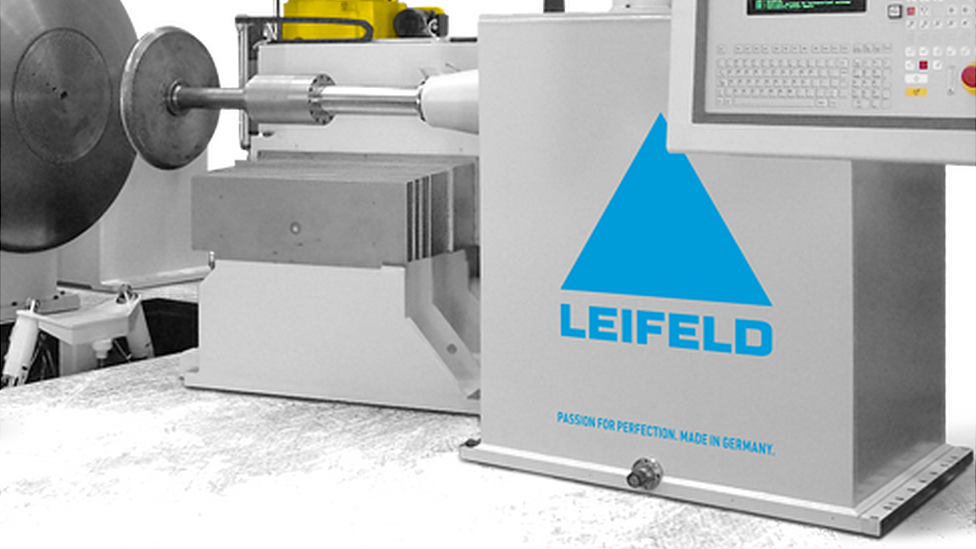Chinese takeover of German firm Leifeld collapses
- Published

The German government has vetoed the takeover of an engineering company by a Chinese firm on the grounds of national security.
China's Yantai had planned to buy machine tool maker Leifeld, but the move raised political concerns.
Yantai pulled its bid after Berlin signalled that it would invoke new powers to block foreign takeovers.
Leifeld specialises in manufacturing for Germany's aerospace and nuclear industries.
Last year, Germany tightened rules on foreign investment, giving itself wider powers to block takeovers.
The Leifeld deal is the first time the new rules have been brought into play.
Leifeld's majority owner, Georg Koffler, told Reuters that Yantai had dropped its attempt to buy the company ahead of the veto by Berlin.
He criticised Berlin's willingness to intervene, telling Reuters: "We believe these security policy concerns are unjustified."
The move comes amid concerns that Chinese firms could gain too much influence in European economies via foreign investments.
Some politicians and businessmen have complained that the European Union is much more open to investment from abroad than Beijing allows on its territory.
But the Chinese government eased rules that limited foreign investment in the country's banks, car industry and agriculture in June this year.
Germany seems to have joined the US and Canada in attempts to toughen the stance around business deals with China.
In July, the US weighed plans to curb Chinese investment in the country. The scrutiny was tied to concerns that Chinese companies, many of them state-backed, were targeting high-tech industries that could be put to military purpose.
The last time a Chinese firm acquired a German company was in 2016 when China's biggest home appliances manufacturer, Midea, took over industrial robotics maker Kuka.
Chinese firm Midea took over German industrial robotics maker Kuka in 2016
- Published21 May 2018
- Published10 January 2018